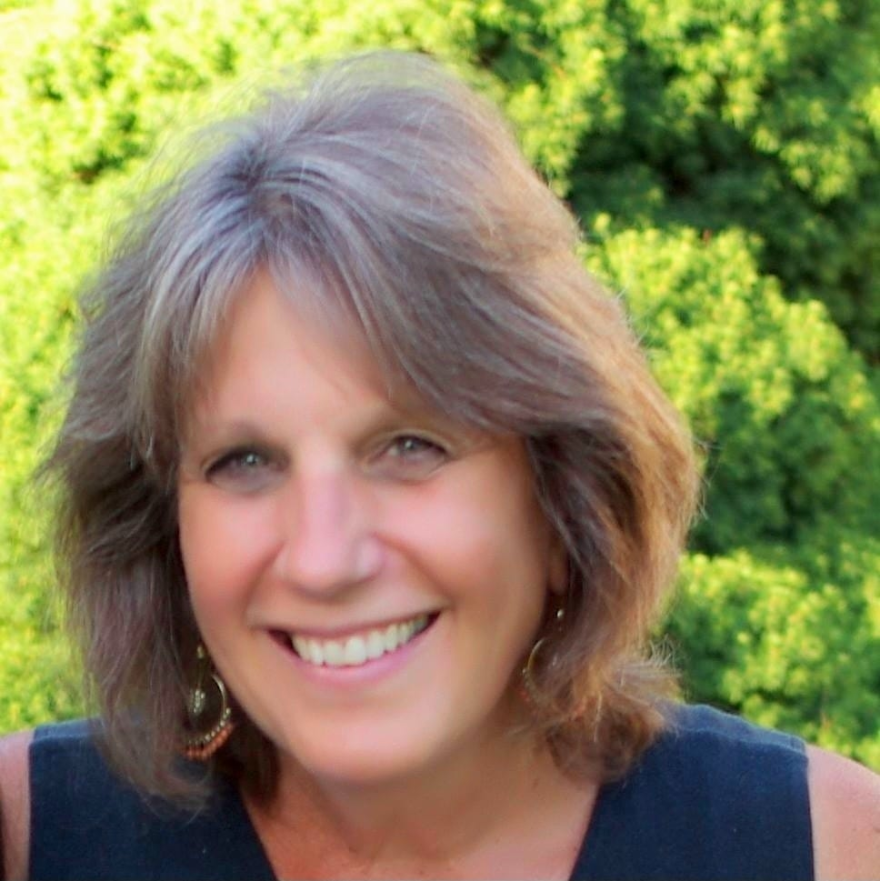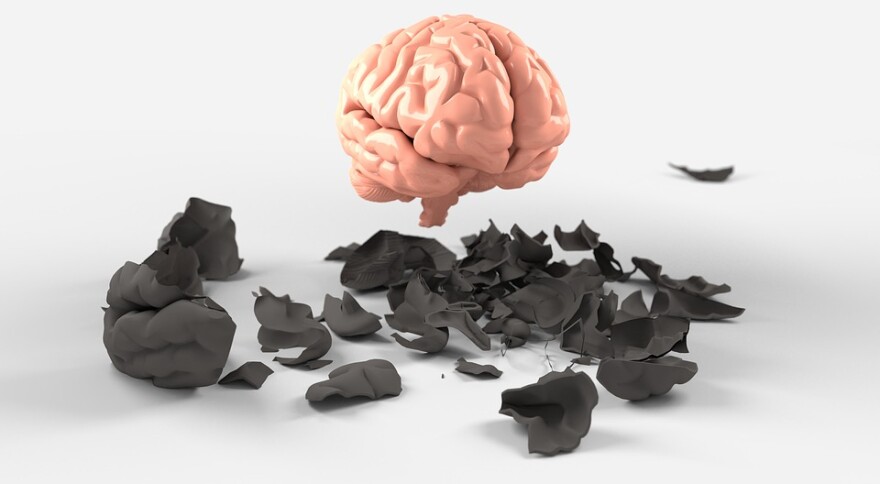COVID-19 has created a dilemma for mental health. The pandemic has increased the need for such care. At the same time, social restrictions have made access to mental health services even more burdensome. Add to that the economic downturn and the renewed battle for racial justice, and we're looking at a potential crisis of depression and anxiety. In the first of a series on mental health matters during a pandemic, WMRA's Randi B. Hagi reports.
The American public's happiness has reached a five-decade low, according to a study from NORC at the University of Chicago, a non-partisan research organization.

JOANNE HENDERSON: It's a crisis time in our country. And so people should not feel guilty or feel bad for feeling, like, totally overwhelmed and concerned and anxious and sad.
Joann Henderson is a licensed professional counselor based in Harrisonburg.
HENDERSON: And then, you know, all the killings of African Americans on top of it, it's just exploded the fear and rage in our country.
When Virginia shut down in response to the pandemic in March, private and public mental healthcare providers alike scrambled to find safe ways to serve their clients. George Nipe is the senior manager of adult outpatient services at the Harrisonburg-Rockingham Community Services Board, or CSB – one of the 40 publicly-funded providers of mental health, substance abuse, and developmental disability services in Virginia.
GEORGE NIPE: As we were able to adjust to do things like therapy sessions over the phone or therapy sessions over video conferencing … we saw attendance and participation go right back to normal rates.
In fiscal year 2019, the Harrisonburg-Rockingham CSB served over 5,400 individuals. The Region 10 CSB, which serves Charlottesville and Albemarle, Fluvanna, Greene, Louisa, and Nelson Counties, served more than 6,000 adults and 3,000 children during that time. They, too, saw a drop in participation at the start of the pandemic, but are now back to working with their usual number of clients. Lori Wood is their senior director of emergency services and short-term stabilization services.

LORI WOOD: We met regularly, every day for a few months just to make sure we were reviewing all the CDC guidelines and other workplace guidelines … so that we were really in line with how we could continue to serve people in the safest, most effective way.
Both CSBs have used a combination of phone, video conferencing, and socially, or maybe more precisely, physically-distanced in-person methods to continue offering the majority of their services. One of the challenges they've had to navigate is providing telehealth in a secure way to clients who don't have a private space in their home.
WOOD: Sometimes that means they go to the park or they find a trail or they create a quiet space in their home or in a car, or wherever they can find that.
George Nipe noted that even having a reliable internet connection is a struggle for some of their clients.
NIPE: They want to participate and have that face-to-face contact, even if it is virtually, and the connection slows down or it cuts out. Any kind of contact, and being able to have the interaction I think makes a difference.

BRENDA DIAZ-CASTRO: I am a very social person…
Brenda Diaz-Castro, a teacher assistant at the Woodland Montessori School in Harrisonburg, has definitely felt that isolation.
DIAZ-CASTRO: … and I feel like there were certain things I used to do that helped me feel more grounded, and made me feel like I had a purpose, like working at Montessori was a really positive thing for me. Going to shows and hanging out with friends was something that helped me feel really strong in myself, too…
Since the pandemic started, she's increased her therapy sessions from every two weeks to once a week.…
DIAZ-CASTRO: Having therapy once a week helps me stay grounded. And now with the protests going on, all the police brutality happening, I have found that talking to my therapist has helped me sort through all the feelings that come up.
Diaz-Castro has been supporting these local protests. She pays for therapy out of pocket, and her therapist has set a rate that she can afford. I heard from other Shenandoah Valley residents about their own situations: one said his therapist has seen him pro bono throughout the pandemic. But another said his insurance didn't cover telehealth, so he hasn't been receiving therapy, which then jeopardizes his access to medication.
Not having access to mental health services is especially dangerous during this time when so many of us are isolated. Lori Wood said that the Region 10 CSB in Charlottesville has seen an increase in rates of both addiction relapse and suicidal thoughts, also called suicidal ideation, among their clients.
WOOD: Hope for the future and confidence in moving forward: that has been difficult for people to hold on to during this time, and so there's been an uptick in calls for service for people with suicidal ideation, for folks with anxiety and depression.

Kimberly Lester is a technical writer for a local software company. She's been meeting with her therapist more often in the past few months: first over video conference, but recently, while social distancing outside.
KIMBERLY LESTER: I had a fair amount of anxiety. It kind of feels like the world's on fire right now, honestly. There's just so much going on.
As counselor Joann Henderson says, especially in times of national crisis, the last thing we all need is for mental health issues to be stigmatized.
HENDERSON: I guess I would just want to normalize for folks that this is indeed a really crisis time, and we are feeling kind of traumatized by it all. And that it is good to reach out for help.



